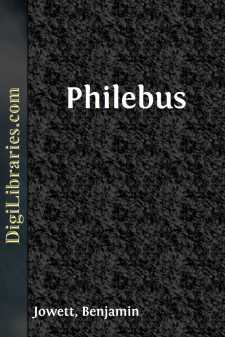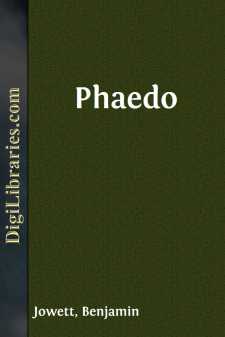Categories
- Antiques & Collectibles 13
- Architecture 36
- Art 48
- Bibles 22
- Biography & Autobiography 813
- Body, Mind & Spirit 142
- Business & Economics 28
- Children's Books 17
- Children's Fiction 14
- Computers 4
- Cooking 94
- Crafts & Hobbies 4
- Drama 346
- Education 46
- Family & Relationships 57
- Fiction 11829
- Games 19
- Gardening 17
- Health & Fitness 34
- History 1377
- House & Home 1
- Humor 147
- Juvenile Fiction 1873
- Juvenile Nonfiction 202
- Language Arts & Disciplines 88
- Law 16
- Literary Collections 686
- Literary Criticism 179
- Mathematics 13
- Medical 41
- Music 40
- Nature 179
- Non-Classifiable 1768
- Performing Arts 7
- Periodicals 1453
- Philosophy 64
- Photography 2
- Poetry 896
- Political Science 203
- Psychology 42
- Reference 154
- Religion 513
- Science 126
- Self-Help 84
- Social Science 81
- Sports & Recreation 34
- Study Aids 3
- Technology & Engineering 59
- Transportation 23
- Travel 463
- True Crime 29
Apology
by: Benjamin Jowett
Description:
Excerpt
INTRODUCTION.
In what relation the Apology of Plato stands to the real defence of Socrates, there are no means of determining. It certainly agrees in tone and character with the description of Xenophon, who says in the Memorabilia that Socrates might have been acquitted 'if in any moderate degree he would have conciliated the favour of the dicasts;' and who informs us in another passage, on the testimony of Hermogenes, the friend of Socrates, that he had no wish to live; and that the divine sign refused to allow him to prepare a defence, and also that Socrates himself declared this to be unnecessary, on the ground that all his life long he had been preparing against that hour. For the speech breathes throughout a spirit of defiance, (ut non supplex aut reus sed magister aut dominus videretur esse judicum', Cic. de Orat.); and the loose and desultory style is an imitation of the 'accustomed manner' in which Socrates spoke in 'the agora and among the tables of the money-changers.' The allusion in the Crito may, perhaps, be adduced as a further evidence of the literal accuracy of some parts. But in the main it must be regarded as the ideal of Socrates, according to Plato's conception of him, appearing in the greatest and most public scene of his life, and in the height of his triumph, when he is weakest, and yet his mastery over mankind is greatest, and his habitual irony acquires a new meaning and a sort of tragic pathos in the face of death. The facts of his life are summed up, and the features of his character are brought out as if by accident in the course of the defence. The conversational manner, the seeming want of arrangement, the ironical simplicity, are found to result in a perfect work of art, which is the portrait of Socrates.
Yet some of the topics may have been actually used by Socrates; and the recollection of his very words may have rung in the ears of his disciple. The Apology of Plato may be compared generally with those speeches of Thucydides in which he has embodied his conception of the lofty character and policy of the great Pericles, and which at the same time furnish a commentary on the situation of affairs from the point of view of the historian. So in the Apology there is an ideal rather than a literal truth; much is said which was not said, and is only Plato's view of the situation. Plato was not, like Xenophon, a chronicler of facts; he does not appear in any of his writings to have aimed at literal accuracy. He is not therefore to be supplemented from the Memorabilia and Symposium of Xenophon, who belongs to an entirely different class of writers. The Apology of Plato is not the report of what Socrates said, but an elaborate composition, quite as much so in fact as one of the Dialogues. And we may perhaps even indulge in the fancy that the actual defence of Socrates was as much greater than the Platonic defence as the master was greater than the disciple. But in any case, some of the words used by him must have been remembered, and some of the facts recorded must have actually occurred....












